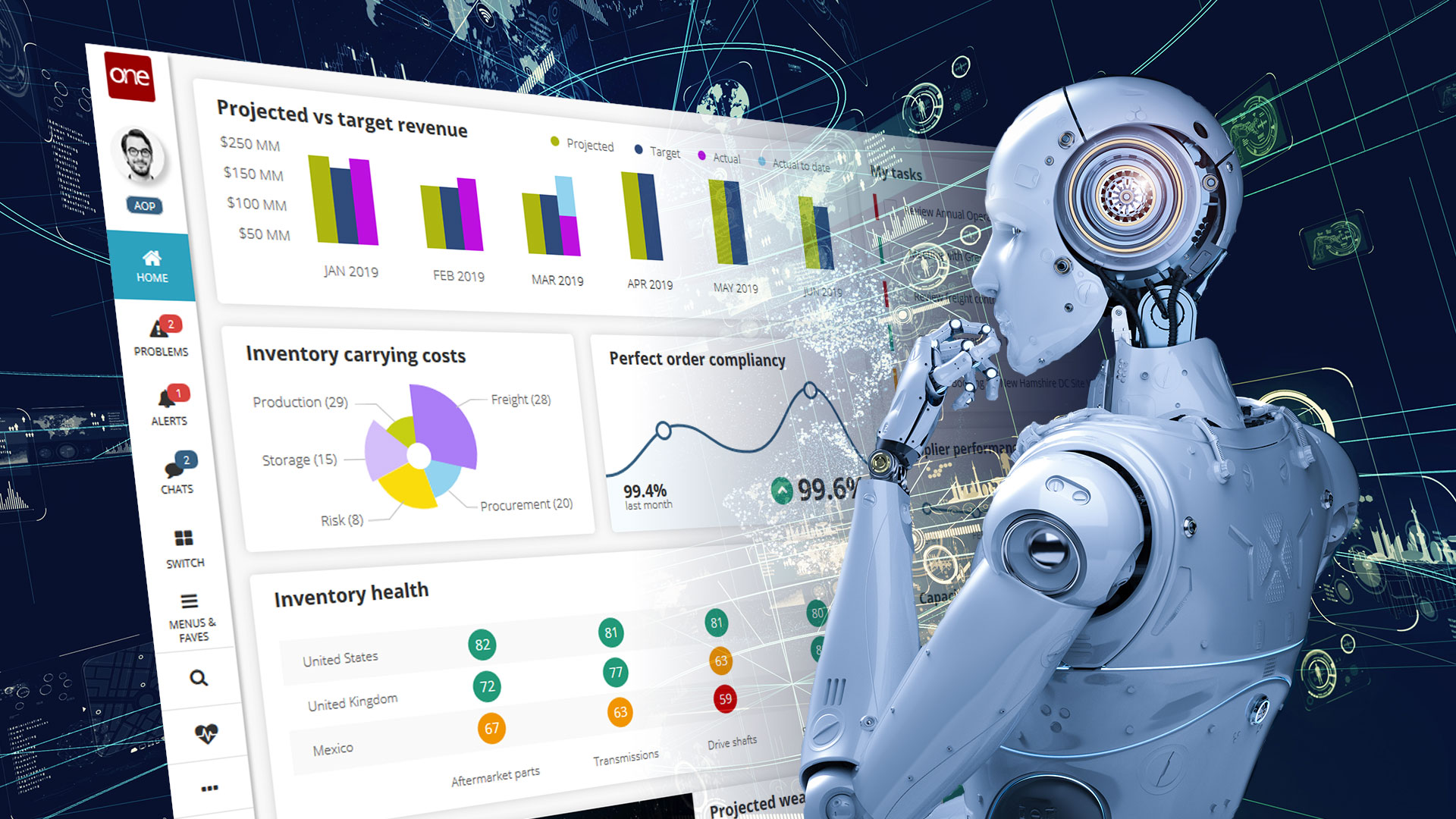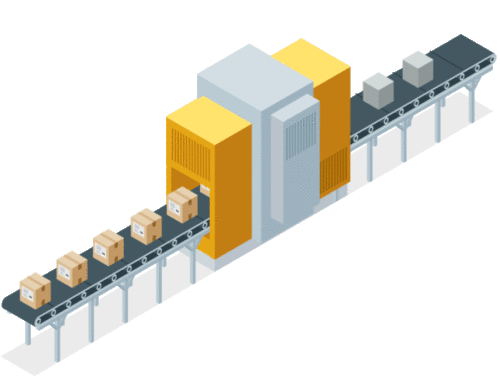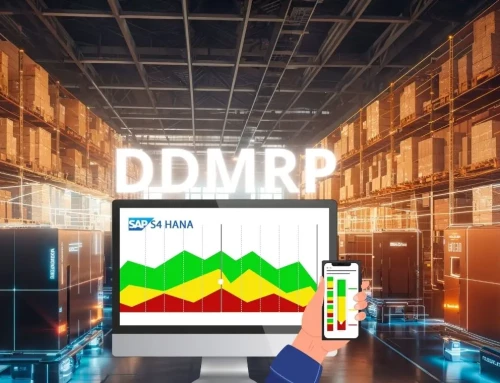
In recent years, artificial intelligence (AI) has redefined the landscape of supply chain management (SCM), offering a range of solutions to tackle some of the industry’s most complex challenges.
As global supply chains continue to grow in size and complexity, businesses face increased pressure to optimize operations, reduce costs, and respond swiftly to market demands. AI-driven solutions for supply chain management hold significant promise for helping organizations meet these challenges. By adopting an integrated, end-to-end approach, businesses can align opportunities and constraints across all functions—from procurement through to sales.
AI’s capacity to analyze vast amounts of data, identify patterns, enhance operational visibility, and support more informed decision-making positions it as a potential game changer.However, to fully harness the benefits of AI, companies must go beyond technology and implement organizational changes that enable them to unlock its complete value. For many organizations, the integration of AI into their supply chains is not just a matter of competitive advantage but a necessity in adapting to today’s fast-paced, technology-driven world.
This article explores the diverse applications of AI within the supply chain, highlighting its benefits, challenges, and potential to reshape the future of global trade and logistics.
McKinsey estimates that early adopters of Artificial Intelligence in supply chain have leveraged their increased analytical capabilities to improve logistics costs by 15%, inventory levels by 35%, and service levels by 65%. However, the consultancy also reports that more than 60% of AI-related supply chain projects were late or over budget. This underscores the fact that while new technology solutions have the potential to be transformative, their successful implementation relies heavily on how well executives prepare their organizations. Without proper planning, even the most promising AI-driven solutions may not deliver the expected returns.
Supply-chain management solutions based on artificial intelligence (AI) are expected to be potent instruments to help organizations tackle these challenges.
An integrated end-to-end approach that leverages AI can address the opportunities and constraints of various business functions, from procurement to sales. AI’s ability to analyze vast amounts of data, understand intricate relationships, provide visibility into operations, and support better decision-making makes it a potential game changer for organizations. However, getting the most out of AI requires more than just adopting the technology; companies must also take organizational steps to capture the full value from AI, such as aligning their structure, processes, and talent.
Practical Applications: Exploring AI Use Cases
Demand Forecasting
AI-powered demand forecasting leverages historical data, market trends, and external factors (like economic indicators and weather patterns) to predict future demand more accurately than traditional methods. Machine learning algorithms analyze these variables to forecast demand fluctuations, enabling businesses to make proactive decisions around production and inventory.
This precision reduces costs associated with overproduction or stock-outs and helps companies meet customer demand more reliably.
Inventory Management
Managing inventory efficiently is crucial for cost control and customer satisfaction. AI solutions automate stock level monitoring, using real-time data to predict restocking needs and optimize reorder points. For example, AI can help determine optimal stock levels by analyzing seasonal trends, sales spikes, and supplier lead times, ensuring that businesses maintain the right balance. This reduces both excess stock costs and risks of shortages, while enabling efficient use of storage space and resources.
Logistics Optimization
AI is transforming logistics with algorithms that optimize delivery routes, schedule shipments, and manage fleets dynamically. Using real-time traffic data, fuel consumption metrics, and delivery deadlines, AI can identify the most efficient routes for delivery vehicles, leading to shorter transit times and reduced costs. In warehouse management, AI can also assist in order picking and packing, with robots using AI to improve fulfilment accuracy and speed.
Quality Control and Defect Detection
AI-powered computer vision systems are revolutionizing quality control by identifying defects during production that might be missed by human inspection. By analyzing high-resolution images of products, AI can detect flaws or inconsistencies at various stages of manufacturing. This process ensures higher product quality and reduces waste or recalls, as issues are caught early. In addition, predictive maintenance powered by AI helps prevent equipment breakdowns by monitoring machinery health and alerting operators to potential failures before they happen.
Customer Service and Experience
AI can also bring many benefits. Until now, AI-powered chatbots could handle a certain number of customer requests and provide more or less precise answers. With the arrival of generative AI, such as ChatGPT, capable of generating new content from an existing base, the quality of exchanges is greatly improved. These very high-quality interactions with the company’s customers and prospects help reduce waiting times and improve the level of satisfaction.
Supplier Relationship Management
AI also plays a role in optimizing supplier relationships by analyzing supplier performance, pricing trends, and delivery timelines. Natural language processing (NLP) algorithms can even sift through vast amounts of contract data and communications to evaluate compliance and identify risk factors. AI helps organizations select and manage suppliers more strategically, fostering stronger partnerships and minimizing disruptions due to unreliable sources.
Emerging challenges of Artificial Intelligence integration in Supply Chain: a complex future to overcome

AI’s effectiveness in supply chains relies heavily on data quality, completeness, and accessibility. However, supply chains involve data from multiple, dispersed sources—such as suppliers, manufacturers, logistics providers, and retailers—each using its own systems and formats.
Consolidating this information and ensuring accuracy is complex and costly, and inconsistent data can undermine the accuracy of AI models, leading to unreliable insights. Consequently, robust data integration strategies are essential for AI success.
Additionally, deploying AI often involves high upfront costs for upgrading technology infrastructure, hiring skilled personnel, and implementing machine learning models. For smaller companies, especially those in low-margin sectors, these investments may be prohibitive. Integrating AI tools with existing legacy systems also demands considerable financial and technical resources, deterring some organizations from pursuing full-scale implementation.
Algorithms in Artificial Intelligence, particularly machine learning models, are complex and often difficult for non-technical personnel to interpret, which can reduce trust in AI-generated insights and cause resistance among stakeholders.
Further, AI’s reliance on data sharing across the supply chain increases exposure to cyber threats, necessitating strong cybersecurity measures to protect sensitive information. The growing number of interconnected devices and data sources broadens the attack surface, making cybersecurity a priority for AI adoption.
Workforce resistance can also hinder implementation, as employees may feel threatened by automation or struggle to adapt, while the demand for specialized skills in data science and machine learning may exceed current workforce capabilities.
Ethical and regulatory concerns add another layer of complexity, as companies navigate issues such as data privacy, bias in AI algorithms, and labor rights. Compliance with evolving regulations, like Europe’s GDPR, requires constant attention to ensure AI use is responsible and lawful.
Join the ranks of successful businesses we’ve helped.
Get in touch to learn how we can achieve the same results for you!
Future of Artificial Intelligence in Supply Chain
AI’s future in supply chain management is set to revolutionize every phase, from planning and production to customer delivery and post-sale support.
Autonomous and robotic technologies are rapidly evolving, particularly for warehousing, distribution, and last-mile delivery. Amazon and Alibaba, for instance, have pioneered the use of warehouse robots that can move items from shelves to packing stations, significantly reducing human labor and speeding up order processing.
In last-mile delivery, companies like FedEx and UPS are investing in autonomous delivery vehicles and drones. For example, UPS has piloted drone delivery to remote areas, where traditional vehicles are either too slow or impractical. These technologies promise to cut delivery times and operational costs, especially in high-density urban areas, while also addressing labor shortages in logistics.
Predictive maintenance is another promising application of AI in supply chain management. Companies like Siemens use predictive maintenance to monitor machinery and predict when repairs are needed, reducing downtime and preventing costly equipment failures. By integrating Internet of Things (IoT) sensors, companies can gather real-time data on machinery conditions, such as temperature, vibration, and usage levels. This data, combined with machine learning algorithms, helps forecast and preempt equipment malfunctions, saving companies millions in maintenance costs and production downtime. Rolls-Royce, a leader in this space, uses AI-driven predictive maintenance for its aircraft engines, helping airlines avoid costly groundings and improve safety by detecting potential issues early.
AI is also set to drive hyper-personalized customer experiences in the supply chain, catering to consumers who increasingly demand real-time updates, tailored recommendations, and shorter delivery windows. Retailers like Walmart and Target use AI to analyze customer behavior and predict purchasing trends, allowing them to stock products that align with anticipated demand and streamline logistics accordingly. AI-powered chatbots and virtual assistants enhance customer service by providing immediate responses to inquiries about order status, delivery times, and product recommendations. For instance, by using AI-driven analytics, Amazon can provide hyper-personalized recommendations to each customer, while logistics updates powered by AI improve customer satisfaction by offering accurate delivery windows and notifications.
In terms of building resilience and adaptability, AI offers supply chain managers the ability to navigate disruptions such as natural disasters, economic shifts, and geopolitical issues. Through real-time data analysis and predictive modelling, AI can assess risks, suggest alternative suppliers, and recommend optimal transportation routes. During the COVID-19 pandemic, companies with AI-integrated supply chains were better positioned to adapt to rapid shifts in demand and mitigate supply disruptions. Unilever, for example, leveraged AI to manage its complex network of suppliers and distribution centers, helping to avoid stock-outs in essential products. Additionally, companies like IBM are developing AI solutions that simulate various “what-if” scenarios to prepare for events like port closures or raw material shortages. By building adaptive supply chains, businesses can respond swiftly to changing conditions and maintain a steady flow of goods and services.

Looking forward, the future of Artificial Intelligence in the supply chain also includes real-time decision-making and end-to-end visibility. Many companies are turning to AI-driven control towers that provide a centralized view of the entire supply chain, from raw materials to end consumers. These digital control towers offer insights into inventory levels, supplier performance, and customer demand patterns. For example, DHL’s Resilience360 is a cloud-based platform that leverages AI to offer real-time visibility into potential risks and disruptions across global supply chains, enabling companies to act proactively rather than reactively. This end-to-end transparency will be essential for companies seeking not only to improve efficiency but also to meet growing demands for sustainability, as it enables accurate carbon footprint tracking across supply chain activities.




